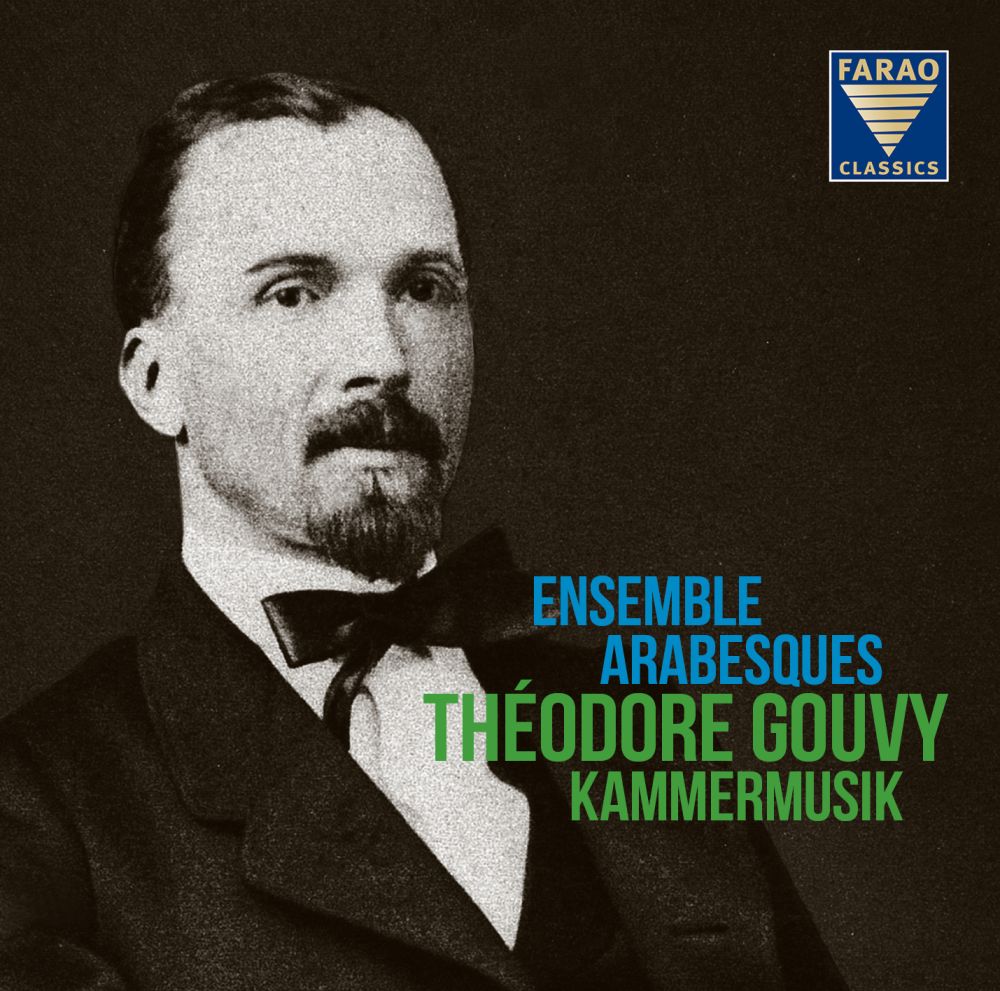

Order number: B 108127
Price € 15,00
Shipment costs € 3,90 (worldwide)
free above € 30,00 order
Shipment costs € 3,90 (worldwide)
free above € 30,00 order
Order number: B 108127

Théodore Gouvy Kammermusik
Ensemble arabesques
Recorded at the Immanuelskirche Wuppertal, 2024
CD
Théodore Gouvy chamber music.
Théodore Gouvy, a composer hailing from Saarland-Lorraine, combines French grace, elegance, and clarity of structure with German depth and thoroughness. His work chiefly consists of symphonic and chamber music; he shaped the French wind school and influenced neoclassicism. With his septet, octets, and nonets, Gouvy anticipates modern ensembles that would only really come into their own at the turn of the twentieth century. As a bilingual musician, he straddled the cultures of Germany and France and acted as a true musical link between the two countries. This twofold cultural connection influenced his artistic orientation and shaped the special profile of his oeuvre. Gouvy was as well known, recognized, and respected in France as he was in Germany, but was too German for one and too French for the other, such that neither nation really claimed him for its own. Despite his brilliant career, he was unjustly forgotten in the twentieth century.In 2017, the ensemble arabesques launched the concept idea of dedicating an album to composers with a penchant for wind instruments. The series was inaugurated with the highly successful CD album Gustav Holst Kammermusik. This was followed in 2019 by repertoire by Francis Poulenc, who was known for his love of woodwind instruments. In 2021, the ensemble devoted itself to Jacques Ibert. Similar to Holst, Ibert's special charm lies in his different ensemble settings featuring woodwind instruments, strings, and harp.
Press review
musicweb-international.com
Make no mistake these are outstanding wind chamber works by Gouvy. Throughout such first-class performances one senses considerable technical prowess from the Ensemble Arabesques together with an uncommon level of engagement. Producing outstanding tone from their instruments the positive and resolute energy of the players coalesce with stunning results. ... It's a valuable release!Michael Cookson, October 30, 2025

